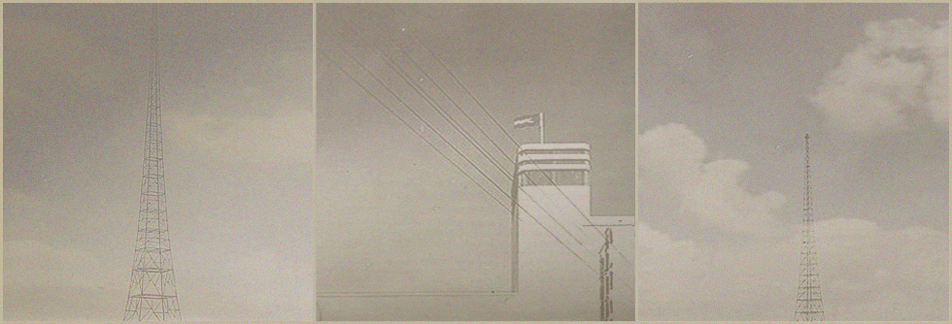| > |
47. Beladi (Motherland)
Written by Mustafa Kamel
Music by Said Darwish
Performed by Al Fat’h members
Available on Palestine Lives! Songs from the Struggle of the people of
Palestine (Paredon Records, USA 1974)
And here is the first version of Biladi – or Beladi, as it is also spelled – that we found. The following description of the song is by Kamal Boullata and Miriam Rosen and comes from the liner notes to the album Palestine Lives!:
‘One of the earliest songs that caught up with the sentiments of the Palestinian and the Arab masses was ‘Beladi’. The music of this song was popular since the twenties. It was originally composed by Said Darwish (1892-1923), an Egyptian pioneer who was a founder of a people’s music in the Arab world. The original words of the song were uttered in a speech by Mustafa Kamel, an Egyptian nationalist hero, upon his return from exile in France. The words here were slightly altered to serve the theme of Palestine. This is one of the few Palestinian songs that is accompanied by the takht traditional orchestration; likewise in terms of content it retains a traditional vision of the motherland.
Motherland, motherland,
Fat’h is a Revolution against the enemy.
Palestine, the land of our forefathers,
to you we will return.
Fat’h is a revolution that we shall win:
Assifa is the hope of my motherland.
Palestine, oh great love,
you are my goal and my destiny.
To you I walk, and my determination
shall overcome oppression.
Palestine, birthplace of Christ,
destination of Muhammad’s journey,
Liberate my wounded land,
cleanse from it the usurpers.
Palestine, my only hope,
to you we shall restore
The dignity of our destitute people,
under the banner of protracted struggle
Palestine, your people shall not
die.
It shall defy silence, and Assifa
shall keep the finger on the trigger.
Assifa walks there,
planting the land with explosives
Loaded with destruction and doom
for every exploiter of the motherland
Here is Kamal Boullata again, with a description of how the song became a part of the Palestinian consciousness, and the technology that aided the song’s popularity, the radio:
‘To an Arab the radio is as indispensable as a car is to an American. The radio, as it were, became today’s extension of the long oral tradition of the Arabs as the car became the requisite passport to the spatial freedom Americans traditionally yearned for. If an Arab cannot afford to have a radio of his own, all he has to do is to go down to the souk, where radios of shop-keepers are turned on full blast, or to a nearby cafe where men sit closely together on low chairs smoking their arghileh. Or he may choose to go to a neighbour’s house for a cosier atmosphere. There is always something important to hear with someone: a Koran recital, a favourite song or a news bulletin.
In times of war or political tension, crowds of people would be seen on a street corner, in a village square, gathering in one lump around a transistor as if that gadget were the palpitating heart of the group’s survival. For over twenty years, displaced Palestinian Arabs on both sides of the barbed wire used to gather around some radio to hear the news of relatives they were separated from by the ever-expanding borders of the state of Israel.
I am speaking of all this because these defiant songs that were to be embraced by the masses were first heard over the radio, the same vehicle that had been a mirror for too much Arab escapism, sorrow and deceit.
[…] In the aftermath of the war in June 1967, there was a disturbing lull. People had just heard Nasser resigning. A stroke of lightning hit the backbone of the Arab masses. People could not recover from the shock of the extent of defeat suffered by the regular Arab armies. It was at such a time that news of guerrilla operations started leaking. Handfuls of Palestinians, people heard, were able to defy the victors of the Six-Day War and strike deep into an Israel which had just announced to the world that its borders were sealed off with minefields and electronic devices. The radio started announcing bulletins of the beginning of a new kind of war. The phosphate factory at Sodom was blown up, the plastic factory at Bersheba followed, the patrol refinery at Elath, in Haifa; the Dodge assembly plant at Nazareth… and with the accomplishment of every new operation there were the beginnings of a new song.
The Palestine Liberation Movement has never had a stable transmitting station of its own. However, it has been able, according to the wavering political climate of Arab capitals, to borrow time on local state-owned stations to transmit their bulletins and to air the songs. In the beginning, the songs were few, like the number of fighters. Many seem to have been composed in a frenzy. One of the very first songs to be aired over the radio was Biladi.
- About the songs & the singers, by Kamal Boullata, from Palestine Lives! Songs from the Struggle of the people of Palestine, Paredon Records, USA, 1974 http://www.folkways.si.edu/albumdetails.aspx?itemid=2243
There is also a third version of Biladi,
‘Biladi, Biladi, Biladi’ (‘My
Homeland, My Homeland, My Homeland’). It uses Kamel’s speech
but is in fact the national anthem of Egypt.
| < | > |
